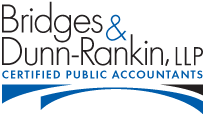Buying or selling real estate? Consider a 1031 exchange
By Kenneth H. Bridges, CPA, PFS March 2011
Real estate has always received very favorable treatment under our tax laws. For your residence, you get to take deductions for the interest and taxes, and then, when you sell it at a gain, you can generally exclude up to $500,000 of the gain from taxable income (assuming a married couple and two years of residency). For business or investment real estate, you get to take depreciation deductions (even though the property is rising in value), and then when you sell it you can potentially avoid paying tax on the gain by doing a “section 1031 like-kind exchange”.
In its simplest form, if you owned Blackacre and someone else owned Redacre, the two of you could swap properties and no taxable gain would be incurred. In real life, it’s rarely quite this simple. Usually the buyer for the property you are selling and the seller of the property you desire are different parties. Further, you may find a buyer for your property before you find the property you want to buy or vice versa. Fortunately, the tax law provides the flexibility to do a nontaxable exchange in these situations. The key is to properly structure the transaction and have a “qualified intermediary”.
Sometimes we get a call after someone has already sold their property and has the cash wanting to know about doing a like-kind exchange. At that point, it is too late. All of this must be structured and in place before you close on the sale of your property and before you close on the purchase of your replacement property.
While the section 1031 rules are quite complex, the basic fundamentals are pretty simple. First, both the property you are relinquishing and the replacement property you are acquiring must be used in a trade or business or held for investment. Second, in order to enjoy full tax deferral, the property(s) you are acquiring must be equal to or greater in value than that of the property you are selling.
While real estate is the asset we most frequently think of in connection with 1031 exchanges, other types of assets can qualify as well (e.g. plant machinery), so long as it is of “like-kind” and is not amongst the types of assets specifically excluded (e.g. stocks, bonds, inventory and partnership interests)
Whenever you are considering buying or selling real estate or business assets of significant value, give us a call and we can explore with you the potential benefits of structuring a 1031 exchange.
Kenneth H. Bridges, CPA, PFS is a partner with Bridges & Dunn-Rankin, LLP an Atlanta-based CPA firm.
This article is presented for educational and informational purposes only, and is not intended to constitute legal, tax or accounting advice. The article provides only a very general summary of complex rules. For advice on how these rules may apply to your specific situation, contact a professional tax advisor.
